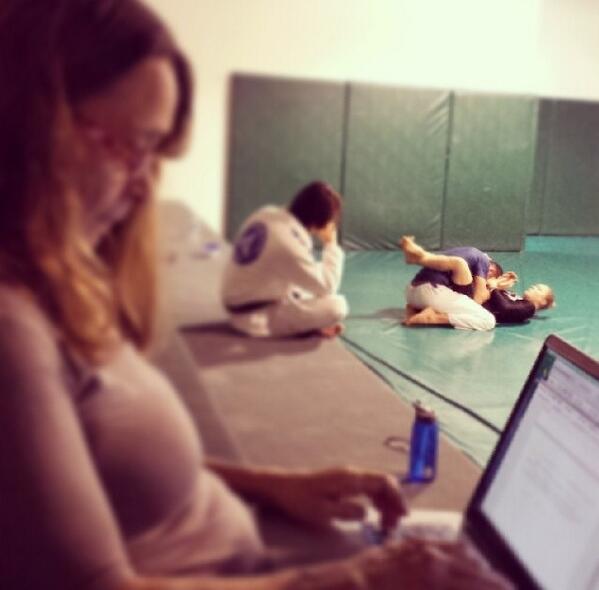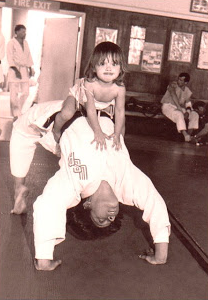You may not know that, before I founded or co-founded four companies and a non-profit foundation, I was the first American to win the world judo championships. I also taught Entrepreneurship at California Indian Nations College.
At first glance, it might appear that judo and entrepreneurship don’t have all that much in common. In fact, as world judo champions go, I’m a bit of an outlier. While most other champions go on to become coach of their country’s national team or open their own gym, after the world championships, I started a doctoral program specializing in applied statistics.
Actually, my experience in becoming a world champion, particularly in judo, transferred a lot to successful entrepreneurship. First of all, can we just say forget that nonsense of overnight success while you’re working all alone in your garage? From the time I stepped on the mat, at 12 years old, until I won my first senior national championships, was seven years. It was another seven years after that before I won the world championships.
Perseverance is more important than talent
That was the first of the three biggest lessons. Perseverance is more important than talent. Don’t get me wrong. Talent is necessary, it’s just not sufficient. No one comes on the mat, trains for 18 months and is best in the world. Whether it is your first judo throw or your first game you have made, your first time at anything, you’re probably going to suck at it. Then, you do it again, and get better. I laughed at the idea that people need to do something 10,000 times to be an expert. There is a picture on my wall of me doing a throw in the world championships final match – I practiced that throw over 300,000 times. We started out making educational games and good games take a long time to develop, to test and then to market to schools. It took us – the three co-founders – two years to break even. It was another five years and a couple million dollars of contracts after that before we had refined our customized development platform which allowed us to make good games faster and cheaper than anyone else. That was seven years of getting incrementally better every day.
Everyone in the room is important
My second big lesson was that everyone in the room is important. When I was competing, I was also working full time as an industrial engineer and the single mother of a toddler. I couldn’t quit my job and go to some famous gym – and even if I could, none of them would have been the slightest bit interested in me. Even more than now, in my day, judo athletes were overwhelmingly male, and mostly Asian American.
So, my training partners were whoever was at each local dojo that night. The 40-year-old guy who came after work would go a few rounds with me, then a 16-year-old boy, then a 15-year-old girl, then a 50-year-old ex-national champion middle weight. Sure, I trained with the national team sometimes, but it was the players from the local club where I tried out new stuff who helped me get good enough to make that national team.
I don’t have connections with Bill Gates. I don’t summer in the Hamptons next door to venture capitalists. We’ve done three Kickstarter campaigns to fund new products. The average backer was probably $200. Last year, we did a crowd equity campaign, where the general public can invest in a startup. Our average investor put in $2,000.
Yes, we’ve had a couple of seed rounds where investor put in tens of thousands or $100,000 but it was all of those smaller backers who helped us get to that point. Too many people don’t want to bother with the smaller investors or the local kid or old guy at the club. Some of those exact same people at the clubs when I was young grew up to be quite successful and backed us on Kickstarter or invested in our seed rounds.
Don’t listen to the reasons you can’t succeed.
Perhaps the biggest lesson of all was not listening to the reasons I would not succeed. Someone said to me before the world championships, “No one from the U.S. has ever won. What makes you think you can?” I told her, “Someone has to be first, why not me?” Early on in fundraising for 7 Generation Games, I flew up to San Francisco to meet with an investor and he said to me, “Look, we know what people who found successful tech companies look like and it’s not Hispanic grandmothers.” Since I was strongly enjoined not to swear on the company blog, I won’t repeat what I told him.
When people tell me that I cannot do something, like build a platform that will enable anyone to make educational games, my response is “I’ve spent most of my life doing things people told me were impossible for me to accomplish.”




